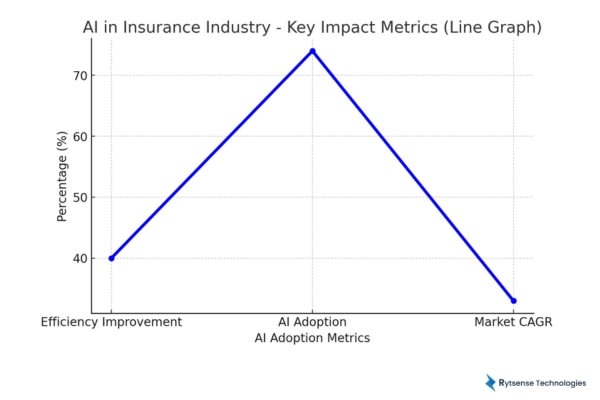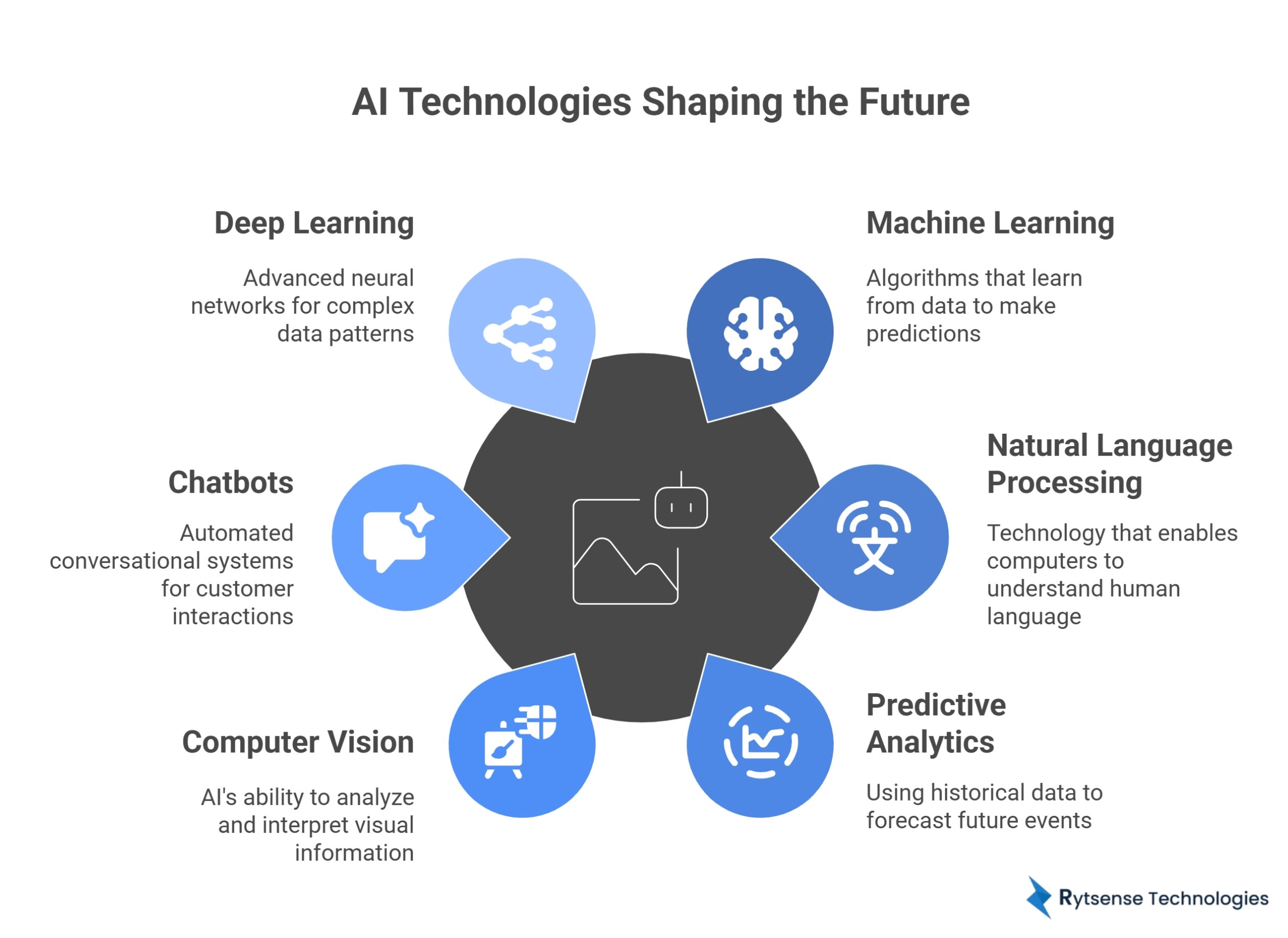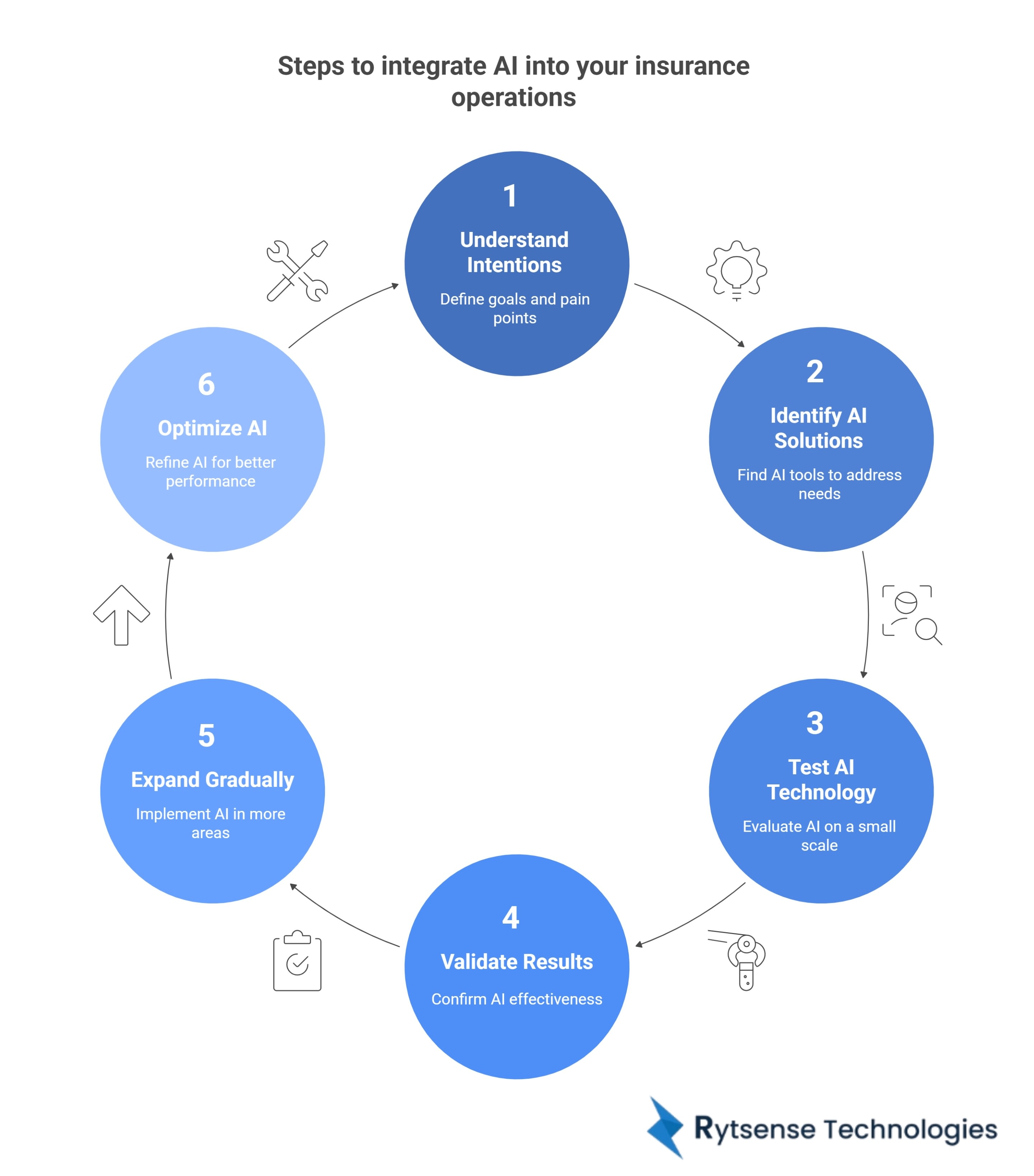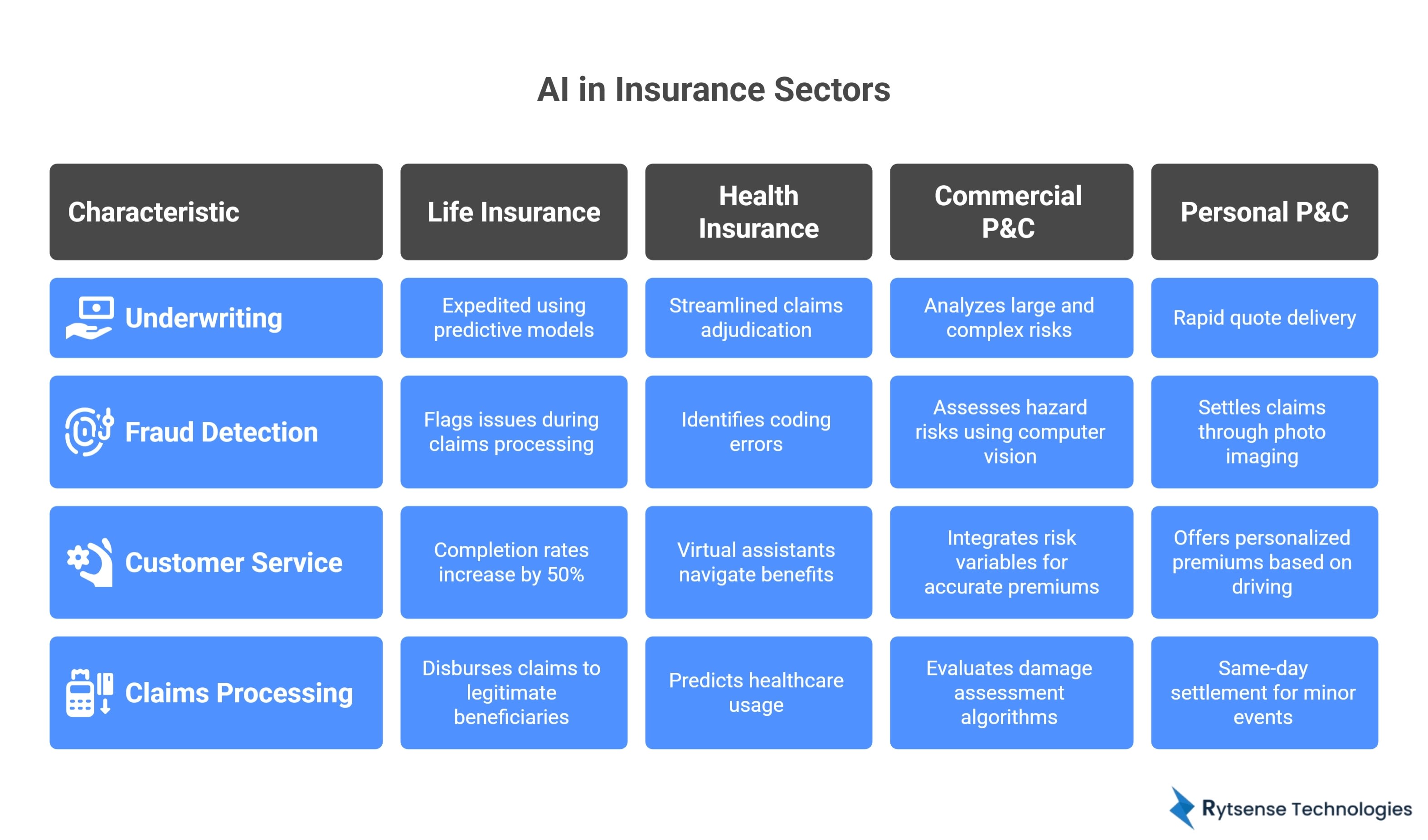Key Takeaways
AI adoption delivers 40% efficiency gains and is essential for insurance agents to remain competitive in a market projected to reach $35.77 billion by 2030.
AI augments insurance agents by automating routine tasks while humans focus on relationship building, complex problem-solving, and strategic decision-making that technology cannot replicate.
Successful AI implementation requires starting with focused pilot projects, selecting reliable vendors, and gradually scaling based on measurable results and team readiness.
Core AI tools like chatbots, voicebots, CRM systems, and document processing reduce agent workload by 50% while improving customer satisfaction and operational accuracy.
Future-proof your career by mastering AI orchestration and developing uniquely human skills like emotional intelligence, strategic thinking, and complex relationship management.
AI for Insurance Agents: The Complete Guide

Overview
The evolution of AI in the insurance industry
Why insurance agents must embrace AI today
An essential guide to AI for insurance professionals
What Is AI for Insurance Agents?
Understanding artificial intelligence in the insurance context
Key AI terms and definitions every insurance agent should know
Benefits of AI for insurance agents
| Term | Definition |
|---|---|
| Machine Learning | Algorithms that learn from data to make predictions and decisions. |
| Natural Language Processing (NLP) | Technology that enables computers to understand and respond to human language. |
| Predictive Analytics | Using historical data to forecast future events and trends. |
| Computer Vision | The ability of AI to analyze and interpret visual information from images. |
| Chatbots | Automated conversational systems that handle customer interactions. |
| Deep Learning | Advanced neural networks that process complex data patterns. |

Want to start using AI to save time and increase conversions in your agency?
How AI Is Transforming Insurance Agencies
Automating routine processes and policy management
Enhancing risk assessment and underwriting
Boosting policyholder engagement and retention
Improving claims management and fraud detection
AI-Powered Customer Engagement
Chatbots and virtual assistants for instant policyholder support
Automated responses and self-service options
Personalized recommendations and tailored policy suggestions
AI Tools for Insurance Agents
Overview of popular AI tools and software in insurance
| Tool Category | Primary Function | Key Benefits |
|---|---|---|
| AI Voicebots | Handle phone inquiries and outbound calls | 24/7 availability, consistent messaging, 80% cost reduction |
| Chatbots | Text-based customer interaction and support | Instant responses, multi-language support, seamless handoff |
| CRM Systems | Customer relationship and pipeline management | Automated follow-ups, predictive lead scoring, activity tracking |
| Document Processing | Extract data from forms and documents | 99% accuracy, seconds processing time, reduced manual entry |
| Risk Assessment Tools | Analyze and score insurance applications | Faster underwriting, improved accuracy, reduced losses |
| Claims Management | Automate claims processing and settlement | Quick payouts, fraud detection, customer satisfaction |
Core capabilities and benefits of AI tools for insurance agents
Real-world examples of AI adoption in insurance agencies
Read Also:
Use cases of AI chatbot in businessesBuilding an AI-Powered Insurance Agency
Steps to integrate AI into your insurance operations
The steps to success start with:
- Assessment
- Planning
- Vendor Selection
- Integration
- Training
- Testing
- Launch
- Optimize.

Choosing between building, buying, or partnering for AI solutions
Data platforms and technology infrastructure to support AI
Key considerations before implementing AI
Not sure which AI tools are right for your agency? We’ll guide you.
Trust, Ethics, and Change Management
Can insurance agents trust AI?
Addressing data security and compliance challenges
Managing organizational change and team adoption
10 things to consider when exploring AI in your insurance agency
- State clear business objectives and success metrics
- Assess current data quality and infrastructure readiness
- Evaluate vendor credentials and industry experience
- Calculate total cost of ownership including training
- Plan phased implementation beginning with pilot projects
- Ensure secuirty and compliance with insurance regulations
- Create data governance and security protocols
- Develop comprehensive training programs for staff
- Create change management strategies for adoption
- Track performance and optimize continuously
Read more:
Agentic ai in manufacturingThe Future of AI in the Insurance Industry
Rytsense Technologies Insights on AI in Insurance
Modern custom AI development allows AI systems to go beyond simple assistance. They can now evaluate leads, score risks, process underwriting steps, and issue policies with minimal human involvement. As AI development services continue to mature, insurance agencies will increasingly rely on autonomous AI agents to manage end-to-end workflows, accelerating turnaround time, reducing errors, and enhancing customer satisfaction.
How Insurers Can Excel in AI Adoption
The agencies that grow fastest integrate AI across every customer touchpoint — from lead qualification and distribution to underwriting, claims handling, and policy servicing — ensuring seamless, intelligent, and consistent operations.
Working with the best AI development company in the USA can accelerate this transformation. Such partners provide domain expertise, scalable AI development company, and tailored implementation strategies that fit existing workflows. Instead of replacing agents, AI elevates them allowing teams to spend less time on manual tasks and more time on advising, consulting, and strengthening client relationships.
Implementing a business-led AI transformation roadmap

The role of agentic AI and generative AI in reshaping the insurance landscape
Reimagined engagement
AI-powered decision-making
Scalable operating models and distributed innovation
Also Read:
Agentic AI in BankingAI Across Insurance Sectors
Life Insurance
Health Insurance
Commercial Property & Casualty
Personal Property & Casualty
Seizing the Agentic AI Advantage
What is agentic AI and why it matters for insurance agents
The potential of generative AI in insurance: Six traits of frontrunners
1) a strategic vision for AI that is included in the organizational business plan
2) a solid foundation of clean data that is accessible and reliable
3) agile experimentation and an accessible culture that encourages the fast deployment of AI applications
4) collaboration between business and technology staff or teams
5) strict governance to ensure AI is being used ethically and legally
6) a culture of ongoing learning that is responsive to both new capabilities and changes in the marketplace.
How insurance agents can future-proof their careers with AI
Conclusion
Transform your insurance agency with AI. Increase efficiency, boost retention, and scale profitably — starting now.
Meet the Author

Karthikeyan
Connect on LinkedInCo-Founder, Rytsense Technologies
Karthik is the Co-Founder of Rytsense Technologies, where he leads cutting-edge projects at the intersection of Data Science and Generative AI. With nearly a decade of hands-on experience in data-driven innovation, he has helped businesses unlock value from complex data through advanced analytics, machine learning, and AI-powered solutions. Currently, his focus is on building next-generation Generative AI applications that are reshaping the way enterprises operate and scale. When not architecting AI systems, Karthik explores the evolving future of technology, where creativity meets intelligence.